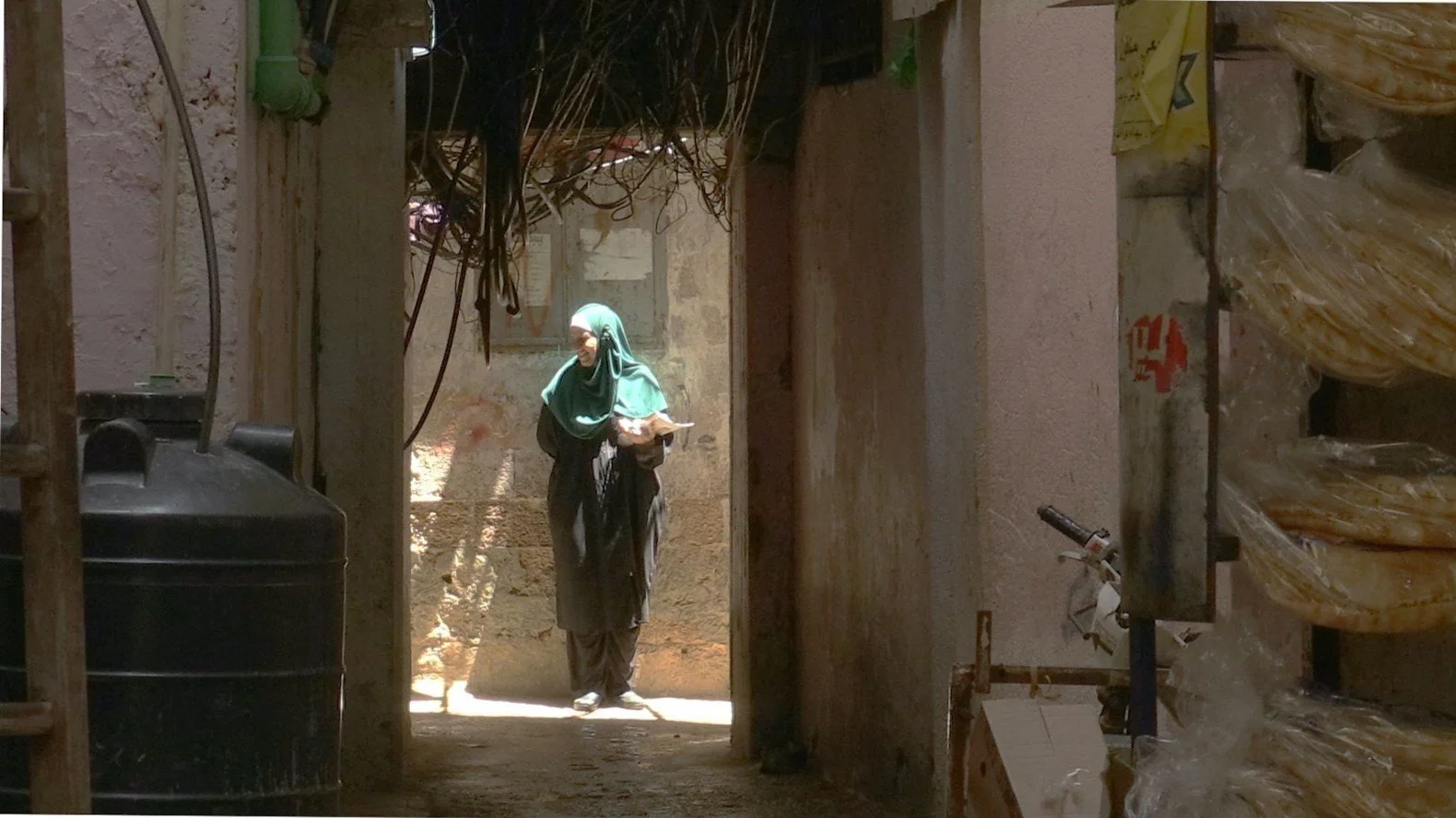Fadia’s Tree
Sarah Beddington’s documentary about a Palestinian refugee proves to be the work of a true artist.
It takes a real artist to create a successful poetic documentary and Sarah Beddington, here making her first feature film, is just that. She is known for her videos and for work in other spheres altogether (they include sculpture, glass etchings and silverpoint drawing, as well as performance art.) However, by waiting this long before making a full-length film, she has found her ideal subject. The Fadia of the title is a Palestinian refugee named Fadia Loubani who has for years lived in Lebanon. Indeed, she was born there in 1968 but has always thought of Sa’sa’ in northern Israel as her true home. It was the place from which her grandparents had fled twenty years earlier due to the massacres which took place in that area, but for Fadia it would remain forever the land where the family’s roots lay. The possibility that the ancestral house might still be standing haunted her, but even more she focused on the existence of a mulberry tree that had stood nearby and it was that which featured most strongly in her dreams of one day returning.
Sarah Beddington has a personal link to all this because some fifteen years ago during a visit to Beirut she met Fadia and they quickly became friends. The acquaintance flourished with the artist making several visits to the Bourj el Barajneh refugee camp near Beirut which incorporates the Al Qassam kindergarten where Fadia has now been the headteacher for three decades. Fadia and her family encouraged Sarah to make this film and in time it became clear what kind of a piece it could be. In her previous work, which included a short film made in 2015, Sarah had touched on her fascination with birds and a connection between that and Fadia’s story became apparent. There was also another development too in that, since Fadia was not allowed back into Israel, she encouraged Sarah to go to Sa’sa’ to pinpoint if possible the exact location where the tree had stood and to let her know if it still existed. By taking on that quest, Sarah found herself creating a contemporary storyline to include in her film, a thread that would eventually lead to a resolution.
The politics of the Middle East are inescapably at the heart of Fadia’s story, but it does not prevent the film from taking on a highly distinctive character of its own. The female sensibility behind it is always apparent and, although Sarah Beddington is never actually seen on the screen despite her voice being heard, Fadia’s Tree comes to life due to the filmmaker having the eye of a poet. It is entirely appropriate that she is also the photographer here, but her vision proves wonderfully expressive not just in the composition of the shots and in the atmosphere they convey but in her feeling for cinematic images. Without concealing the tragic heart of displacement that is central here, Fadia’s Tree is full of the beauty that can be found in the natural world and that leads directly into the footage of birds which becomes a strong feature. It is truly a central element in the film because the emphasis on the migration of birds is there to provide a direct comparison: their remarkable homing instincts are directly in keeping with the desire deep inside Fadia to return one day to the place that feels like her true home. But, if the birds are free to fly to where their instincts take them, Fadia is restricted and Fadia’s Tree is a film which abhors the existence of borders that curtail freedom.
It may be that the approach adopted in this film is not without some limitations. I say that bearing in mind that its concluding scenes did not for me possess quite the emotional power that I was expecting. But, nevertheless, I did sense all the time that Sarah Beddington was expressing her own artistic vision with exceptional skill and doing so in a work which perfectly matched what Fadia Loubani wanted the film about her to express. The detail is always apt, right down to the discreet but atmospheric music by Muqata’a, and I would not hesitate to recommend this film.
MANSEL STIMPSON
Featuring Fadia Loubani, Sami Backleh, Nezmia Awad, Khalil Moussa, Mahmoud Salaam, Abu Jehad Loubani, Simon Awad, Ali Kassem, Razan Mograbi, Amir Balaban, Violette Hakmeh.
Dir Sarah Beddington, Pro Susan Simnett and Sarah Beddington, Screenplay Sarah Beddington, Ph Sarah Beddington, Ed Ariadna Fatjó Vilas, Music Muqata’a.
Over the Fence Films/Fence Films-Verve Pictures.
82 mins. UK. 2021. UK Rel: 5 August 2022. Cert. U.


